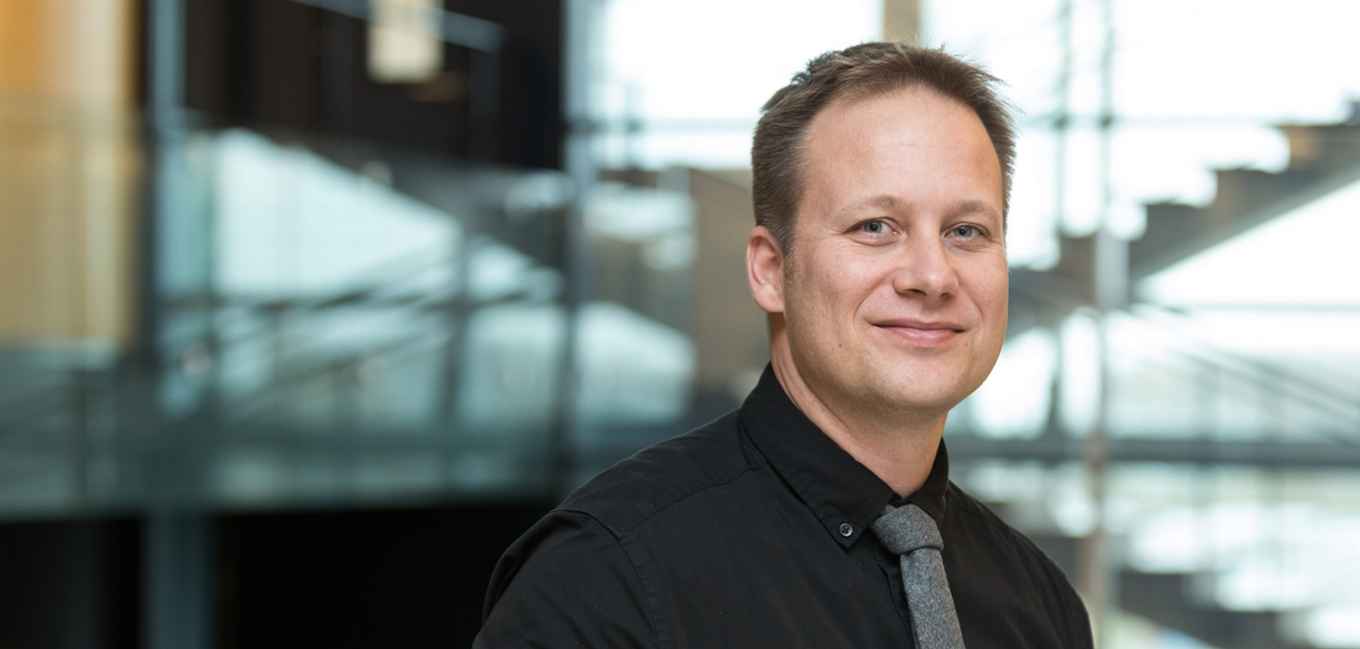How AI is impacting the role of University Libraries
7 April 2025

During the UKB network meeting in March, Prof. Paul Groth, scientific director of the UvA Data Science Centre – part of the UvA Library –, explored these questions in a presentation, drawing on his four years of experience leading the Data Science Centre. In this interview Groth shares his insights on AI’s growing role in academia, the evolving skillsets needed within libraries, and how the Library and Data Science Centre are driving innovation.
In your presentation, you emphasized that university libraries not only disseminate knowledge but also facilitate and generate it, quoting former UvA Rector Magnificus Prof. Dr. Karen Maex. How do you see the role of libraries evolving in the age of AI?
A key function of the library has always been to help train students and researchers about what constitutes high quality information and provide routes to it. The need for such literacy only increases with the prevalence of AI. The library has a critical role to play in this sort of training. I also think the library can help in the creation of AI systems, for example, around metadata for AI models or curating data for AI training while doing this in a responsible fashion.
Can you share a concrete example of how AI is currently being applied within the Data Science Centre community?
Check out our set of Member Spotlights for a great examples of how our members are developing and deploying AI! Already this year, we’ve featured an incredibly diverse range of applications—from analyzing bias in AI-generated language to developing algorithms for studying plant-microbe interactions and designing (generative) AI solutions for hospitals. And that’s just a glimpse of the many ways our members are driving innovation.
Your presentation highlighted that AI is increasingly used in research, but that its adoption varies across disciplines. What are the biggest barriers preventing researchers from embracing AI?
The answers are two-fold, many AI approaches such as machine learning which requires time and effort to learn. That’s why the availability of Generative AI models (e.g. ChatGPT) is so exciting because it lowers the barrier to the use of these tools. However, researchers are concerned about whether the output of Generative AI tools can be trusted. Being skeptical is part of the scientific method so that’s a good stance to have. But I would encourage everyone to experiment and see where it might help them.
You contributed to a report for the European Commission on the successful and timely uptake of AI in science. What are the most important insights from this report for universities and libraries?
That report emphasizes that AI can improve research productivity and accelerate progress and I think that means the embrace of the potential of AI to change research is imperative. Lucikily, I think we are doing that here at the UvA with initiatives like the Data Science Centre. The second highlight is the importance of AI literacy which I discussed above.
The UvA Data Science Centre has been active for four years now. What are the successes and lessons learned so far?
I think the biggest success has been our community. Our affiliate members are doing excellent research and the connections they have made to each other I believe are part of that success. The biggest lesson is that it’s important to move fast and build on what the institution already has – like the capabalities of the library.
Your presentation mentioned the evolving skillsets of librarians. How do you envision the role of the librarian, and what skills will be most crucial in the coming years?
I just finished a paper with a colleague of mine, Corey Harper, where we looked at mapping the skillsets of librarians to those needed for the development and use of AI. A lot apply! Whether it’s understanding material and copyright, curating metadata correctly, or connecting to subject matter experts, these are core capabilities for employing AI responsibly. I think the crucial task of librarians is understanding that their skills do apply and being open to experimentation with new tools and techniques.
What advice would you give to other university libraries looking to start AI initiatives?
I would encourage university librarians to connect to the faculty members within in their institution. There is so much expertise that’s available that can be built on and ways that the library can help.